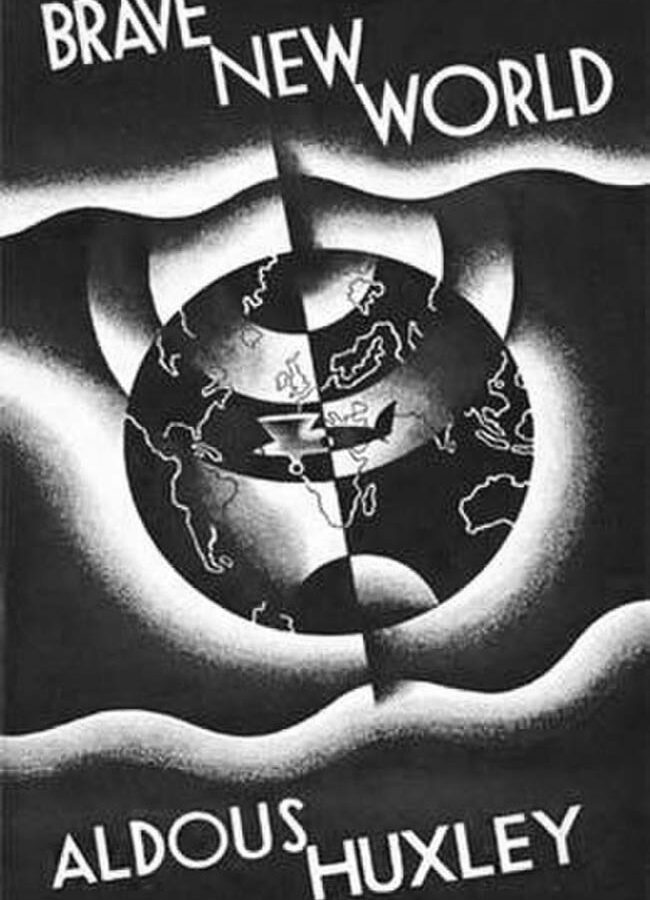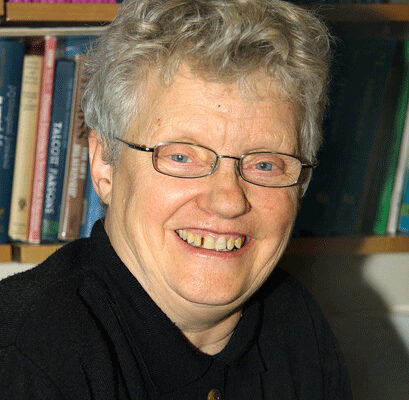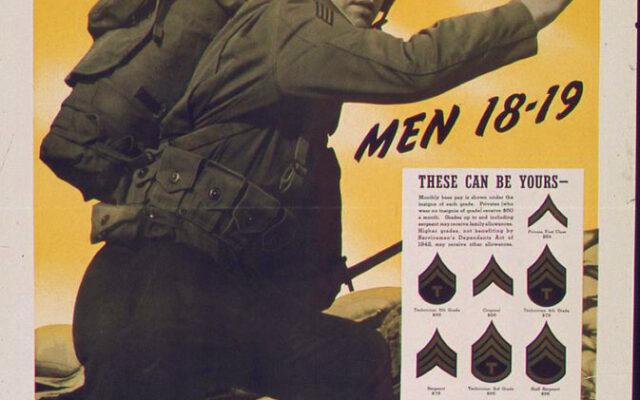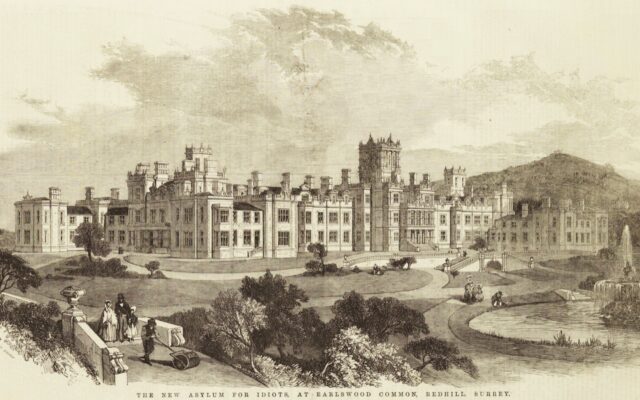Aldous Huxley’s satirical novel Brave New World was published in 1932. Its primary target was American culture, which he feared was in the ascendant, especially with what he saw as its impersonal production lines, unthinking consumption and homogeneous, low-brow culture that discouraged individualism and freedom of thought.
Consequently, the citizens of his Brave New World are not born but engineered in a laboratory, then conditioned to fulfil various predestined roles.
It was also Huxley’s riposte to the optimistic futuristic visions of authors such as HG Wells, particularly Wells’ novel Men Like Gods (1923), which featured a utopia consisting solely of eugenically engineered elites. Huxley thought this society impractical as there would be no one willing to do physical and dirty work.
The eugenically engineered society he devised includes an elite, designated alphas and betas; they are supported by a bedrock of engineered working classes: gammas, deltas and epsilons. These workers are created, scores at a time, from embryos treated to impede cognitive development by being deprived of oxygen or dosed with alcohol.
The epsilons are the most damaged, and perform the most repetitive and unpleasant jobs; but they, like the other castes, are kept happy and compliant through regular drug use, consumerism and frequent, no-consequence sex.
Brave New World was also born of Huxley’s deeply gloomy feelings about the state of society and the future of civilisation, something he shared with many of his contemporaries, including Wells.
When he wrote the book in 1931, Britain was reeling from the Wall Street Crash and the subsequent economic instability of the Great Depression, as well as what many saw as a failure of parliamentary democracy.
While Huxley found many aspects of his Brave New World ridiculous or horrific, he used writing as a way to work through ideas about how an improved society might function.
Brave New World considers how Communist-style planning and rigid control by a meritocracy to implement eugenic policies could thus achieve societal stability – and he explored these ideas in his non-fiction work. Like many others at the time, Huxley supported sterilising the “unfit” (Woiak, 2007).
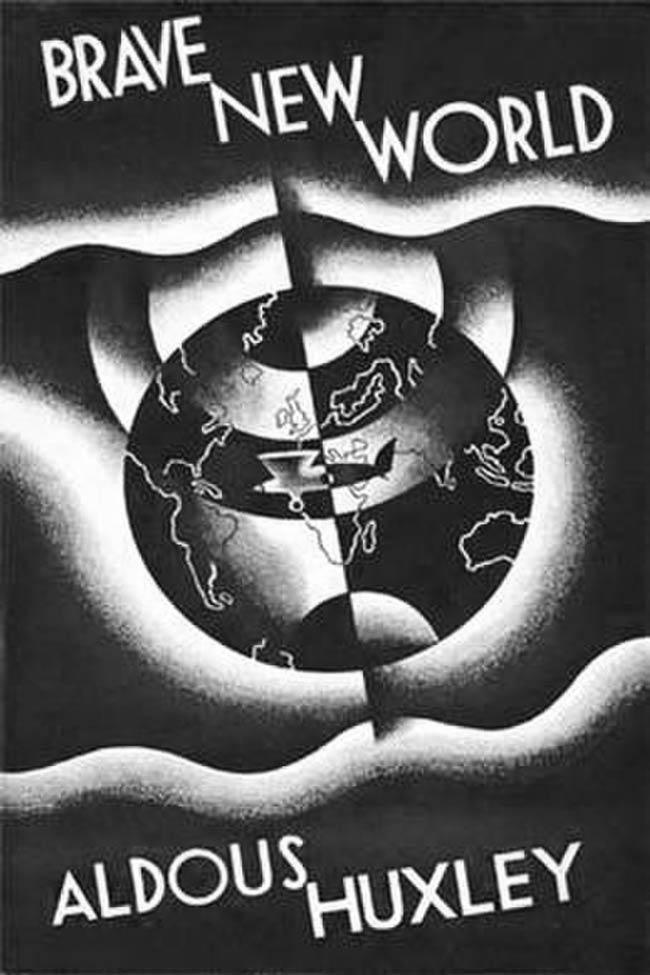
Eugenics and fear for the future
Finding homes for supported living can be difficult. Lisa Brown is bringing property investors and care providers together to design and create accommodation to meet various needs.
upport for some form of eugenics was extremely common across the political spectrum in the interwar years, including among left-wing intellectuals and activists. Playwright George Bernard Shaw, birth-control pioneer Marie Stopes and architect of the welfare state William Beveridge were all vocal eugenicists.
The poor health of recruits in the Boer and First World Wars had provoked panic about the fitness of Britain’s population. This was understood within the framework of inheritance and genetics, with eugenic controls and breeding increasingly presented as the solution.
Alarm and despair at the idea that those of “poor genetic stock” were outbreeding their “superiors” gave rise to apocalyptic predictions for the future, not least that Britain would be overtaken and then taken over by other, more “vigorous” nations who had got their eugenic policies in order.
Much as the differing fictional visions of Huxley and Wells had shown, there was remarkably little agreement over the practical application of eugenics despite widespread faith in its efficacy. Eugenicists disagreed over how best to arrest the birth rate of “undesirables”, with ideas ranging from birth control to the “lethal chamber”.
Opinion coalesced around sterilisation of the unfit, voluntary to begin with but, it was hoped, leading to compulsory measures, as had been seen across America and Europe.
There was also confusion over who the unfit actually were – but all agreed they included the “mentally deficient”. This vague term had been enshrined in law, with people categorised as “idiots”, “imbeciles”, “feeble-minded” and “moral defectives” by the 1913 Mental Deficiency Act.
Backed by the increasingly influential Eugenics Society, Labour MP Major Archibald Church attempted to introduce a voluntary sterilisation bill targeting “mental defectives” into parliament in 1931.
His colleague Dr Hyacinth Morgan spoke against it, denouncing it as “anti-working class legislation” introduced from the “pinnacle of intellectual snobbery”, and an “anti-democratic, anti-Christian, unethical bill” (Hansard, 1931).
The bill was roundly defeated but the threat of voluntary sterilisation for mental defectives continued, officially endorsed by subsequent government and medical committees, and unofficially by influential figures such as Huxley and Wells.
However, no legislation was introduced. The extent of the Nazi atrocities committed in the name of eugenics ensured that, in Britain at least, it never was.
References and further reading
Brignell V (2010) The eugenics movement Britain wants to forget. New Statesman; 9 December. https://tinyurl.com/fwa9hy4v Freedland J (2012) Eugenics: the skeleton that rattles loudest in the left’s closet. The Guardian. 17 February. https://tinyurl.com/acjpjh89 Hansard. (1931) Sterilization. Vol 255, col 1252-1256, 21 July. https://tinyurl.com/aun7esna Huxley A (2014) Brave New World. Vintage. Huxley A (1958) Brave New World Revisited. Chatto and Windus. https://www.huxley.net/bnw-revisited Overy R (2010) The Morbid Age: Britain and the Crisis of Civilization 1919-1939. Penguin Woiak J (2007) Designing a brave new world: eugenics, politics, and fiction. Public History. 29(3):105-29


